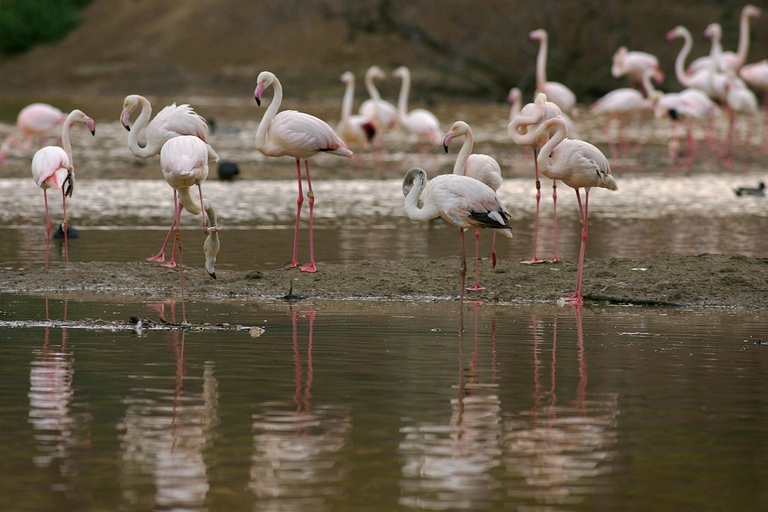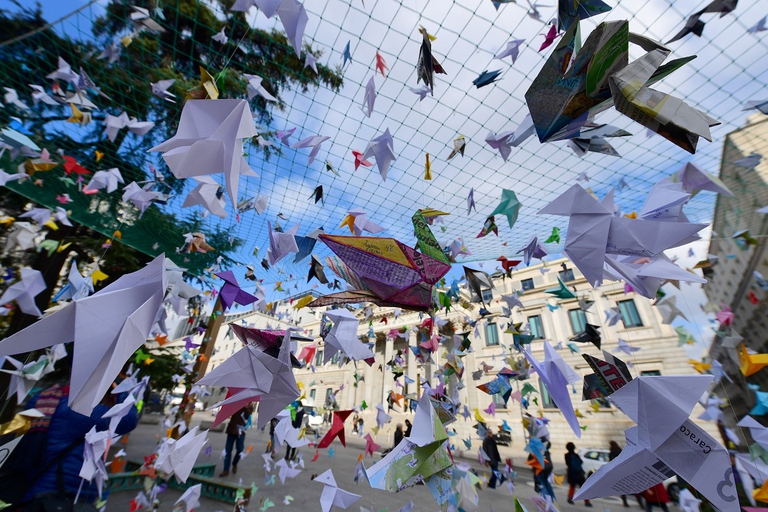
South African court dismisses a major lawsuit by 140,000 Zambian women and children against Anglo American for Kabwe lead poisoning. A setback for affected communities enduring the lasting impact of lead contamination.
Il governo spagnolo ha annunciato di voler rinunciare al progetto di dragaggio del fiume Guadalquivir, salvando così l’area umida del Parco Nazionale Doñana.
The Guadalquivir River won’t be dredged up. The biodiversity-rich wetlands of the Doñana National Park has been granted protection, at least for the moment. The announcement comes from the Spanish government, which has submitted a report to UNESCO saying that it won’t allow dredging operations in the river.
The project to divert the river, as denounced by WWF, was planned to allow commercial ships to cross the watercourse. But due to its huge impact, this would have led the Doñana National Park to be listed as a World Heritage in Danger.
In 2015 the European Commission initiated an infringement procedure against the government of Madrid for the project’s irregularity. However, the statements released by the Andalusian regional authorities and the central government haven’t been enough to reassure WWF, which is asking to make the procedure official through regulations applicable by July 2017, when the World Heritage Committee will gather.
“The Coto Doñana has been given a suspended sentence thanks to the decision made by the Spanish government,” said Juan Carlos del Olmo, head of WWF-Spain. “We’ve been issuing a warning for 15 years, but the park is still threatened by the illegal and unsustainable use of water for agriculture, mining and drilling”.
The Doñana National Park, not far from Seville, is home to immense wetlands and rushes, and is precious for migratory birds. This area has an incredible biodiversity, being home to more than 4,000 animal and plant species. Flamingos, herons and cranes can be observed, along with one of the world’s rarest and most endanger mammals, the Iberian lynx (Lynx pardinus).
Siamo anche su WhatsApp. Segui il canale ufficiale LifeGate per restare aggiornata, aggiornato sulle ultime notizie e sulle nostre attività.
![]()
Quest'opera è distribuita con Licenza Creative Commons Attribuzione - Non commerciale - Non opere derivate 4.0 Internazionale.
South African court dismisses a major lawsuit by 140,000 Zambian women and children against Anglo American for Kabwe lead poisoning. A setback for affected communities enduring the lasting impact of lead contamination.
Controversial African land deals by Blue Carbon face skepticism regarding their environmental impact and doubts about the company’s track record, raising concerns about potential divergence from authentic environmental initiatives.
Majuli, the world’s largest river island in Assam State of India is quickly disappearing into the Brahmaputra river due to soil erosion.
Food imported into the EU aren’t subject to the same production standards as European food. The introduction of mirror clauses would ensure reciprocity while also encouraging the agroecological transition.
Sikkim is a hilly State in north-east India. Surrounded by villages that attracts outsiders thanks to its soothing calmness and natural beauty.
Sikkim, one of the smallest states in India has made it mandatory for new mothers to plant saplings and protect them like their children to save environment
Chilekwa Mumba is a Zambian is an environmental activist and community organizer. He is known for having organized a successful lawsuit against UK-based mining companies.
What led to the Fukushima water release, and what are the impacts of one of the most controversial decisions of the post-nuclear disaster clean-up effort?
Nzambi Matee is a Kenyan engineer who produces sustainable low-cost construction materials made of recycled plastic waste with the aim of addressing plastic pollution and affordable housing.









